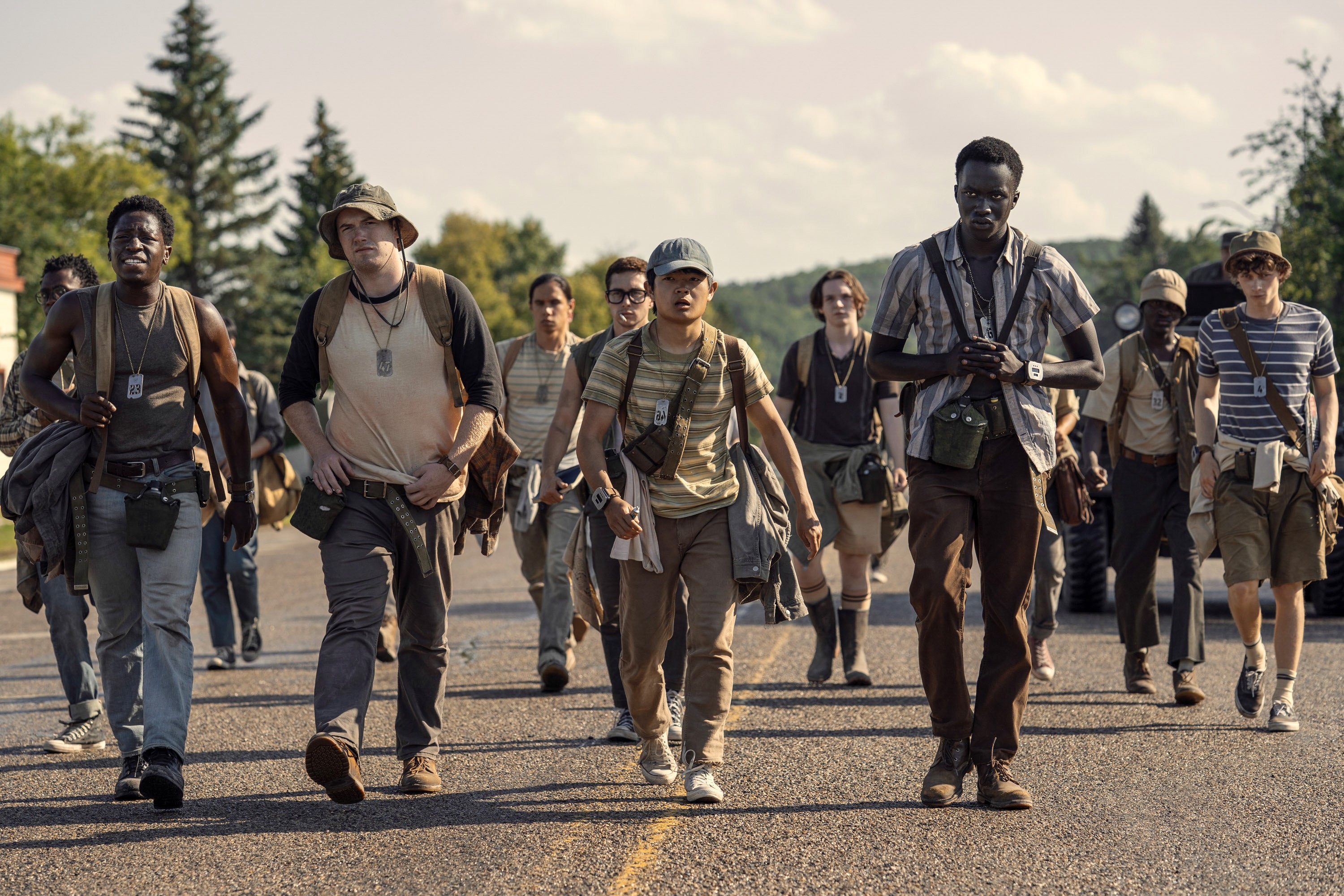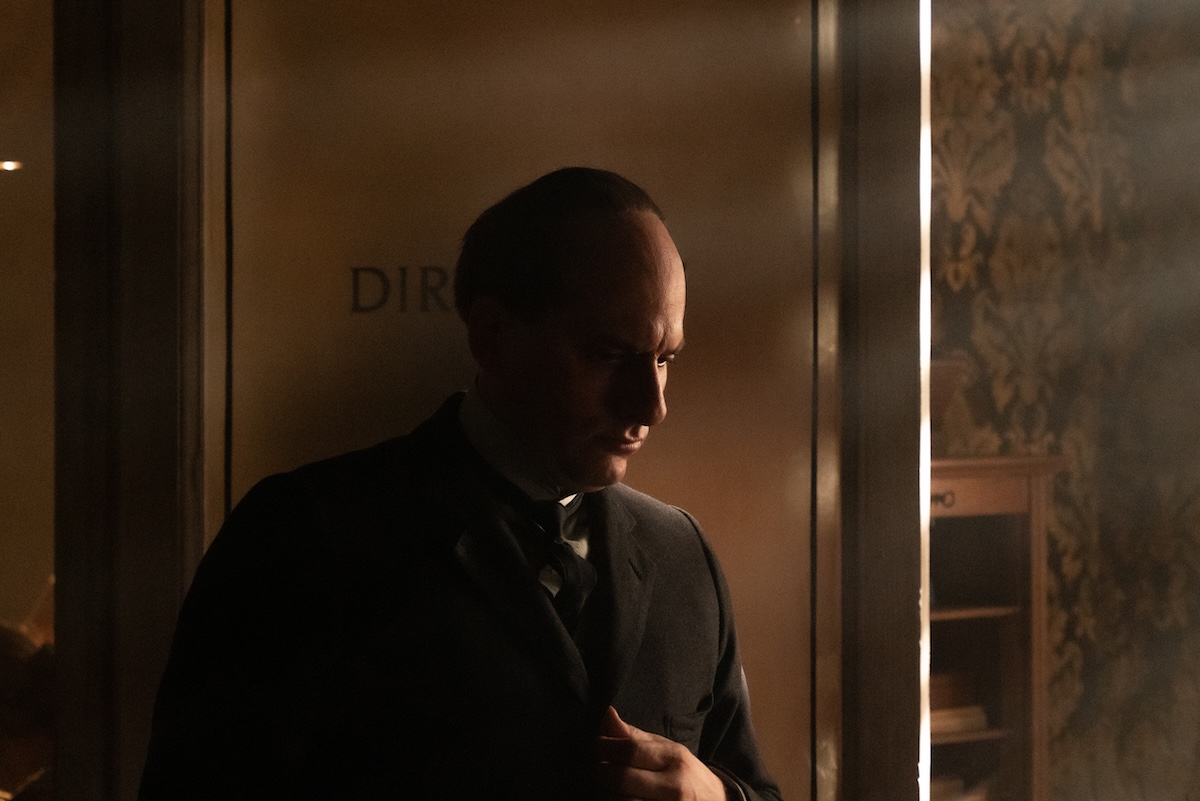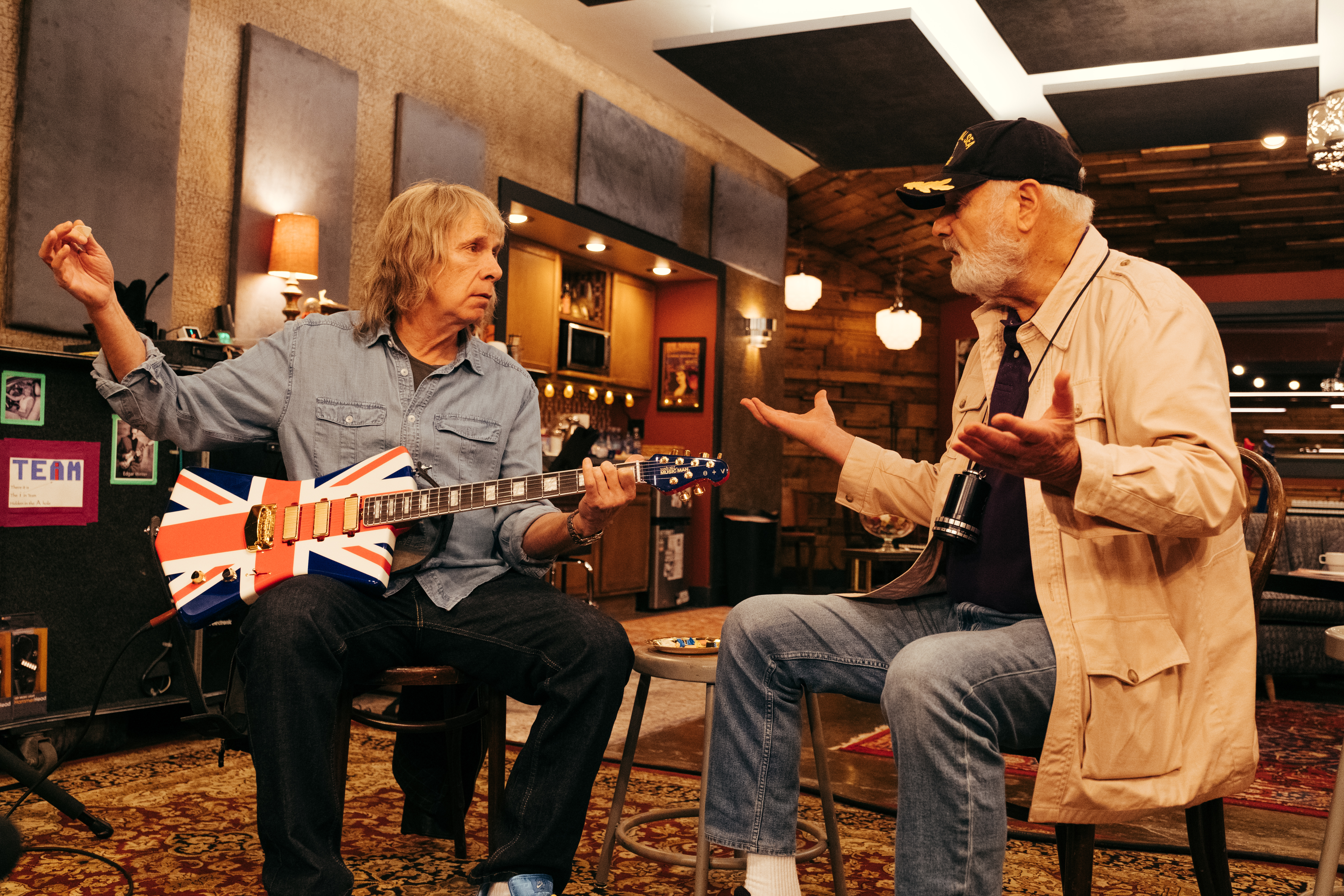Who said all you need to make a movie is a girl and a gun? Evidently, all you may actually need is a roughly 400-mile road, a game cast of youngsters, and Mark Hamill, as director Francis Lawrence’s latest hunger games, “The Long Walk,” is a grim and gripping late-summer treat coated in poison. It also helps that screenwriter JT Mollner (writer/director of last year’s addictively twisted cast-and-mouse “Strange Darling“) has downed the material — a Stephen King, sorry, Richard Bachman-penned young-adult novel from 1979 — without a dose of saccharine hope.
Ultimately, “The Long Walk” comes at its anti-totalitarian message with the subtlety of a point-blank kill. Adapted from the novel King wrote under a pseudonym to separate his writing from his by-then celebrity status, the dystopian thriller is set somewhere, some place, some time, in a post-Vietnam War middle America. In other words, a time that many who lived through that era and this one would say was the other worst time in American history, riven by panic and protest and government corruption laid bare.
In this particular world, as a rebuke of a supposed “epidemic of laziness” spreading across its youth culture, the Long Walk challenge is established as a kind of compulsory draft: Enlist yourself, survive an endless trek without going under 3 miles per hour, and unimaginable riches await you at the other end if you’re the last one alive. Three warnings, and you’re dead, but another hour advanced without going under the speed limit, and one warning gets erased. Meanwhile, Mark Hamill as The Major in aviator sunglasses is shouting at you with a megaphone to keep moving or else.
The calm presence of Cooper Hoffman is our guide on a movie that is literally just a group of determined, out-of-hope young men walking, save a couple flashbacks, here as Ray Garraty, #47. He has his own agenda, packed later into the movie with close-to-the-source-material reverence to reveal that Raymond is coming of age in a time of authoritarian government control and censorship. His father (Josh Hamilton) suffered a bad fate at the hands of the regime’s squadron after introducing spreading illicit political messaging and introducing his kid to the likes of Kierkegaard, Nietzsche, oh my, and later in the movie, Ray may appear to be quoting Heidegger in describing how our individual deaths are the one thing that make us unique to each other as humans.

The last-man-standing imperative of the Long Walk itself gets trickier for contestants to abide as they grow closer to one another. Ray especially bonds with Peter McVries aka #23 (David Jonsson, whose cocksure charisma reveals a softer side when the character is at one point implied to be queer), rattled by the graphic kill of the youngest contestant 20 minutes in, which is also when the film finally drops its title card.
Then, there’s a creepy, reedy Charlie Plummer doing his best Caleb Landry Jones as Gary, #5, who goads other players into shedding down to their weakest points to eliminate them. Yes, there are several visceral shots of a Long Walker or two getting the runs on the way to their moving target of a destination, though, like the blood spewing with each squadron’s unloading into a slowpoke, it’s thankfully (but perhaps cheaply) all done with CGI. Other contestants start dropping like flies, whether in emotional hysterics or foaming-at-the-mouth seizures from exhaustion or dehydration.
In the annals of movies about death races, “The Long Walk” is closest in misanthropic spirit to Sydney Pollack’s shocking 1969 “They Shoot Horses, Don’t They?,” with cinematographer Jo Willems applying a similar dustbowl aesthetic that tends toward the claustrophobic, intentional or otherwise. Shots tend to be in medium close-up, pitched in front of the walking men, without much innovation in angle or framing. This unfussy, even dusty atmosphere makes “The Long Walk” feel all the more realistic or plainly ordinary, a dystopia both backwards in time and close to our own.
“My dad was my hero,” Ray, who’s left a widowed mother (Judy Greer) overwhelmed by grief back at home, tells Peter at one point. That notion, coming from Cooper Hoffman, of course brings to mind his own father, Philip Seymour Hoffman, giving the film an extratextual emotional dimension even as Cooper’s performances are increasingly feeling like a far cry from his father’s tortured, nervous souls and weirdos. Elsewhere in the ensemble, Joshua Odjick (“Wildhood”), Garrett Wareing (as Stebbins, with secrets of his own), and Tut Nyuot (“Small Axe”) also make a potent impression, arguing for “The Long Walk” as a kind of contemporary “Stand by Me” in terms of the proximity of coming of age to mortal danger.
This “Long Walk” indeed grows repetitive, its political message bluntly delivered in a finale that rewrites the book’s ending and is here set so unsubtly to “America the Beautiful” that it makes the climactic shot of Brian De Palma’s “Blow Out” look positively conservative by comparison. “The Long Walk” doesn’t tell you or ask you anything new if you’re feeling pent up with rage by American leadership these days, but the film’s grim commitment to the bit is a rarity for a studio movie: There’s no holding of your hand on this long walk, nor does it read you a bedtime story and tuck you in at the end.
Grade: B
“The Long Walk” opens in theaters from Lionsgate on Friday, September 12.
Want to stay up to date on IndieWire’s film reviews and critical thoughts? Subscribe here to our newly launched newsletter, In Review by David Ehrlich, in which our Chief Film Critic and Head Reviews Editor rounds up the best new reviews and streaming picks along with some exclusive musings — all only available to subscribers.



